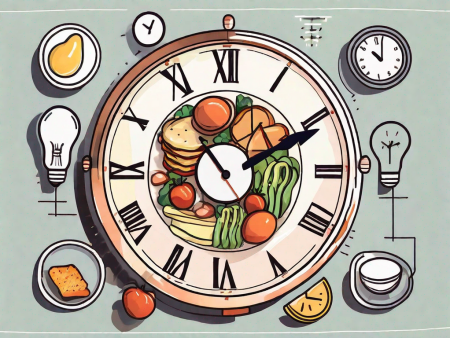Discover how practicing mindfulness can help lower high blood pressure and improve overall health.
Exploring the Benefits of Mindfulness for High Blood Pressure
Living with high blood pressure can be a challenge, but there is a powerful tool that can help: mindfulness. By practicing mindfulness, you can not only reduce your blood pressure but also improve your overall well-being. In this article, we will dive deep into the world of mindfulness and its connection to high blood pressure. So, grab your mat, find a comfortable spot, and let’s begin our journey to a healthier heart!
Understanding High Blood Pressure

Before we explore the wonders of mindfulness, let’s take a moment to understand high blood pressure. Also known as hypertension, high blood pressure occurs when the force of your blood against the walls of your arteries is consistently too high. If left uncontrolled, it can lead to serious health problems. But fear not, dear reader, as mindfulness is here to save the day!
High blood pressure is not some mysterious force that randomly decides to give you a hard time. No, no! It has a scientific explanation. You see, when you are stressed or anxious, your body releases stress hormones, like adrenaline, which cause your heart to beat faster and your blood vessels to constrict. This, in turn, raises your blood pressure. It’s like your body’s way of saying, “Hey, calm down, buddy!”
But what exactly happens inside your body when your blood pressure rises? Well, let’s dive into the fascinating world of physiology. When your blood pressure increases, the heart has to work harder to pump blood throughout your body. This extra effort puts strain on your heart and can lead to damage over time. Additionally, the increased pressure can cause damage to the delicate walls of your arteries, leading to the formation of plaque and narrowing of the blood vessels. This can further restrict blood flow and increase the risk of heart attacks, strokes, and other cardiovascular diseases.
Common Causes of High Blood Pressure
Now that we know the science behind high blood pressure, let’s explore some common causes. These sneaky culprits can include a diet high in sodium, lack of physical activity, smoking, excessive alcohol consumption, and even genetics. But fear not, my friend, because mindfulness is about to teach you some powerful techniques to combat these causes head-on!
Let’s start with the role of diet in high blood pressure. Consuming too much sodium can cause your body to retain water, increasing the volume of blood in your arteries and raising blood pressure. It’s important to be mindful of your sodium intake and opt for healthier alternatives. Incorporating a variety of fruits, vegetables, whole grains, and lean proteins into your diet can help lower blood pressure and improve overall cardiovascular health.
Physical activity, or the lack thereof, is another significant factor in high blood pressure. Regular exercise helps strengthen your heart, improve blood circulation, and maintain a healthy weight. Engaging in activities such as brisk walking, swimming, cycling, or even dancing can have a positive impact on your blood pressure levels. So, put on those workout shoes and get moving!
Smoking, oh smoking! It’s no secret that smoking is detrimental to your health, and high blood pressure is no exception. The chemicals in tobacco smoke can damage your blood vessels, making them narrower and less flexible. This, in turn, increases blood pressure. Quitting smoking is one of the best things you can do for your overall health and well-being, including keeping your blood pressure in check.
Excessive alcohol consumption can also contribute to high blood pressure. While moderate alcohol consumption may have some cardiovascular benefits, excessive drinking can lead to a spike in blood pressure. It’s important to be mindful of your alcohol intake and stick to recommended guidelines. If you’re struggling with alcohol consumption, seeking support from healthcare professionals or support groups can be a valuable step towards better health.
Lastly, genetics can play a role in high blood pressure. If you have a family history of hypertension, you may be at a higher risk of developing it yourself. However, genetics are not a predetermined fate. By adopting a healthy lifestyle, including mindfulness practices, you can still take control of your blood pressure and reduce the risk of associated complications.
So, dear reader, armed with this expanded knowledge of high blood pressure and its causes, you are now ready to embark on a journey of mindfulness. Through mindfulness techniques, you can learn to manage stress, improve your overall well-being, and keep your blood pressure in check. Get ready to embrace a healthier and more mindful lifestyle!
The Concept of Mindfulness
Ah, mindfulness! It’s like a breath of fresh air for your mind and body. But what exactly is it? Well, my friend, mindfulness is all about being fully present in the moment, without judgment. It’s about paying attention to your thoughts, feelings, and sensations, without getting lost in the chaos of your mind. Think of it as a mini-vacation for your brain!
When you practice mindfulness, you embark on a journey of self-discovery and self-awareness. It’s like peeling back the layers of an onion, revealing the true essence of who you are. By cultivating mindfulness, you become more attuned to the intricate workings of your mind and body, gaining insight into your own thoughts, emotions, and behaviors.
The Origins of Mindfulness
Mindfulness may seem like a trendy buzzword, but it has been around for centuries. It originated in ancient Buddhist teachings, where it was practiced as a form of meditation. The idea of being fully present and aware of the present moment is the heart and soul of mindfulness. So, in a way, when you practice mindfulness, you are channeling your inner Zen master!
Imagine yourself transported to a serene monastery nestled in the mountains, surrounded by lush greenery and the gentle sound of flowing water. The ancient monks, with their shaved heads and flowing robes, would spend hours in deep meditation, cultivating mindfulness as a way to achieve enlightenment. They understood that by embracing the present moment, they could find inner peace and liberation from suffering.
How Mindfulness Works
Now, let’s talk about how mindfulness works its magic. When you practice mindfulness, you train your brain to focus on the present moment. This helps you become more aware of your thoughts, emotions, and physical sensations. By acknowledging them without judgment, you create a space in which you can let go of stress and find peace. It’s like having your own mental superhero fighting off anxiety and stress!
Imagine yourself sitting in a quiet room, surrounded by soft candlelight and the soothing aroma of lavender. As you close your eyes and take a deep breath, you begin to notice the thoughts that arise in your mind. Some may be fleeting, like clouds passing through the sky, while others may linger, like a gentle breeze caressing your skin. By observing these thoughts without attaching any judgment or meaning to them, you create a sense of detachment, allowing them to come and go like waves on the shore.
As you continue to practice mindfulness, you may notice a shift in your perspective. The once overwhelming stressors of life may start to lose their power over you. You become more resilient, able to navigate the ups and downs with grace and equanimity. Mindfulness becomes a way of life, a constant companion guiding you through the ever-changing landscape of existence.
The Connection Between Mindfulness and Blood Pressure
Now that we understand high blood pressure and mindfulness, let’s explore the incredible connection between the two. Picture this: mindfulness swoops in like a superhero and reduces your stress levels. As a result, your heart rate decreases, and your blood vessels relax, leading to lower blood pressure. It’s like a tranquil oasis for your cardiovascular system!
The Role of Stress in Blood Pressure
Stress, oh stress! We’ve all experienced it. Whether it’s work-related, personal, or just life being life, stress can wreak havoc on your blood pressure. But fear not, dear reader, because mindfulness is here to save the day! By practicing mindfulness, you can help your body release stress and lower your blood pressure. Say goodbye to stress monsters and hello to zen masters!
How Mindfulness Affects the Body
What happens in your body when you practice mindfulness? Well, let me tell you, it’s pretty amazing. Your heart rate slows down, your breathing deepens, and your blood pressure decreases. Not to mention, you start to feel more relaxed and at peace. It’s like your body is giving you a big, warm hug from the inside!
Mindfulness Techniques for Managing High Blood Pressure
Are you ready to dive into the wonderful world of mindfulness techniques? Well, buckle up, my friend, because we’re about to embark on an adventure to a healthier heart!
Breathing Exercises for Blood Pressure Control
Let’s start with some deep breathing exercises. When you feel stressed or anxious, take a moment to focus on your breath. Inhale deeply through your nose, allowing your belly to expand, and exhale slowly through your mouth. Feel the tension melting away as you become more present in the here and now. It’s like giving your body a mini spa treatment!
Mindful Eating for a Healthier Heart
Ah, mindful eating! It’s not just about savoring each bite; it’s also about nourishing your body and keeping your blood pressure in check. When you eat, take your time and truly savor the flavors and textures of your food. Pay attention to your body’s hunger and fullness signals. By practicing mindful eating, you can make healthier food choices and give your heart some love!
The Long-Term Benefits of Mindfulness on Heart Health
Now that you’ve discovered the power of mindfulness techniques, it’s time to explore the long-term benefits on your heart health. Get ready to be amazed!

Mindfulness and Cardiovascular Disease Prevention
By practicing mindfulness regularly, you are not only reducing your blood pressure but also taking a proactive step towards preventing cardiovascular disease. Mindfulness can help improve your cholesterol levels, reduce inflammation, and even enhance your immune system. It’s like giving your heart a superhero cape!
Mindfulness and Quality of Life Improvement
Last but certainly not least, let’s talk about the impact of mindfulness on your overall well-being. When you practice mindfulness, you cultivate a sense of inner peace and resilience. You become more aware of your thoughts and emotions, allowing you to navigate life’s challenges with grace and compassion. It’s like having your own personal life coach cheering you on!
So, dear reader, are you ready to embark on your mindfulness journey? Remember, mindfulness is not a quick fix; it’s a lifelong practice. Embrace the present moment, be kind to yourself, and watch as your blood pressure takes a joyful plunge! Let mindfulness be your guiding light on the path to a healthier heart!







